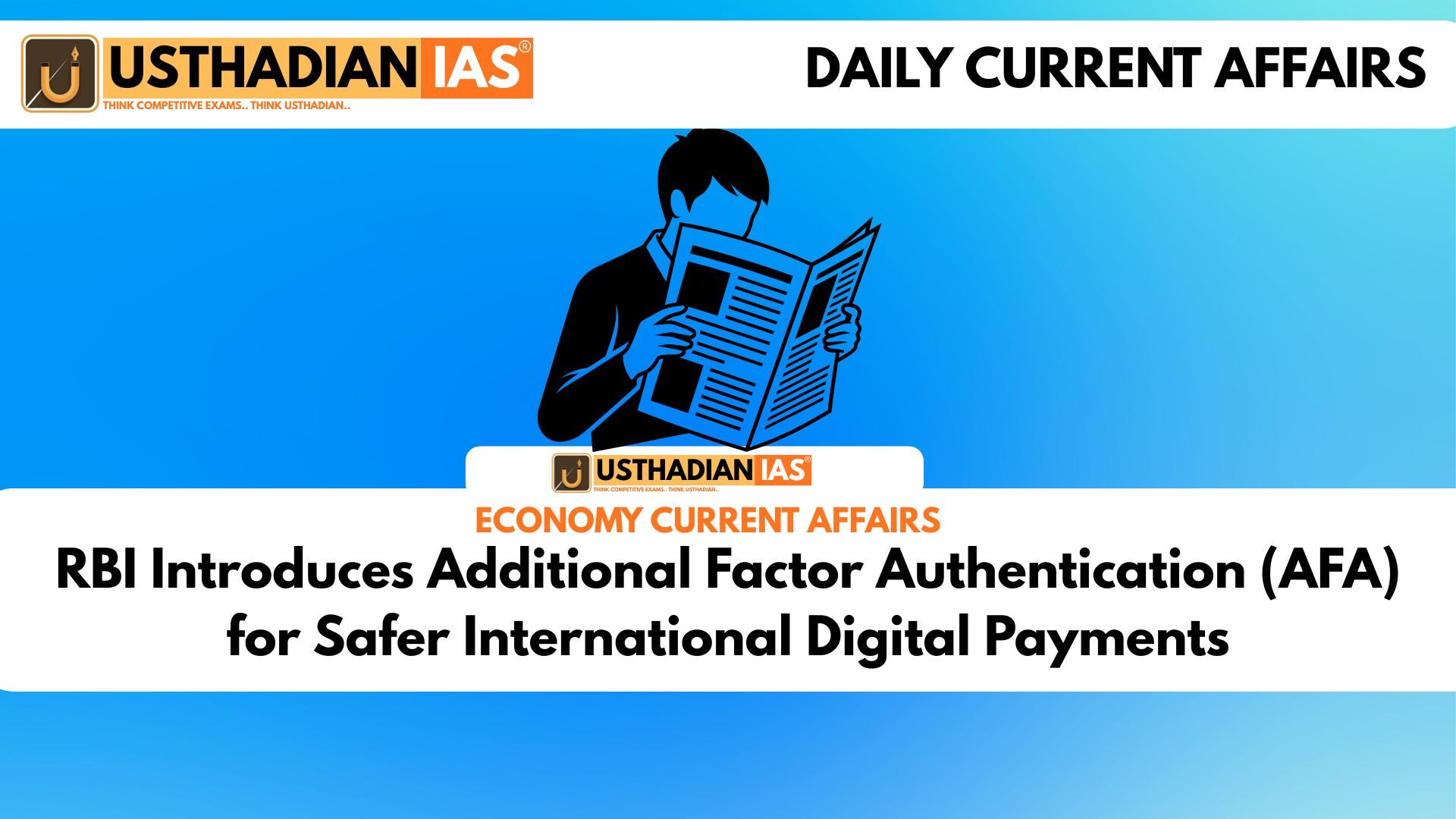Securing Global Transactions for Indian Consumers
RBI Introduces Additional Factor Authentication (AFA) for Safer International Digital Paymentsz; In a bid to enhance the safety of digital transactions, the Reserve Bank of India (RBI) has introduced Additional Factor Authentication (AFA) for all international transactions involving Indian-issued cards. These include “Card Not Present” (CNP) purchases where the physical card is not used. With rising cases of cyber fraud and the growing popularity of global e-commerce platforms among Indian consumers, this move brings international payments in line with the robust security protocols already followed for domestic digital transactions.
What Is AFA and Why It Matters?
Additional Factor Authentication is a security framework that adds another step to the verification process of a digital transaction. It helps prevent unauthorized access by demanding multiple forms of identification, such as a password and an OTP. While already mandatory for domestic online purchases, its absence in international payments had become a major loophole. By extending AFA to global transactions, RBI aims to ensure that users are equally protected, regardless of where they shop online.
New Safeguards for International Transactions
To close the security gap in cross-border payments, RBI will now mandate extra verification methods like OTP verification or biometric authentication. These steps are designed to confirm the identity of the user before a transaction is completed. It will apply specifically to CNP payments, where there is no physical card swipe, making such transactions particularly vulnerable to misuse or theft.
Why This Change Was Necessary
Cross-border transactions have surged in recent years, especially with the rise of international e-commerce platforms. But many foreign merchants lack the security measures that are common within India. This has led to increased instances of online fraud, where stolen card data is used to make unauthorized purchases. RBI’s intervention is critical to restore trust and offer consistent security standards across domestic and international transactions.
RBI’s Framework and Implementation Plan
The RBI will first issue a draft circular to invite inputs from banks, payment processors, and merchants. Following a review period, the regulation will be enforced. The AFA structure is based on three layers of verification—what the user knows (like a PIN), what the user has (like a mobile device), and what the user is (like a fingerprint or face scan). This ensures that each transaction is uniquely verified and significantly harder to exploit.
Impact on Consumers and Banks
Indian consumers will benefit from improved fraud protection and greater confidence while making global purchases. With better safeguards in place, the number of unauthorized international payments is expected to drop. For banks and card issuers, it means updating their technology to handle the added verification requirements. Consumers, in turn, should make sure their contact information is updated to receive OTPs and alerts without disruption.
Moving Towards Safer Digital Commerce
The RBI’s move reflects India’s broader commitment to secure and inclusive digital payments. As the nation’s presence in global digital markets grows, such initiatives ensure that consumer trust remains strong. With AFA in place for international payments, India takes a firm step towards a fraud-resilient digital economy, where convenience does not come at the cost of security.
STATIC GK SNAPSHOT
| Topic | Details |
| Announcement By | Reserve Bank of India (RBI) |
| Purpose | Introduce Additional Factor Authentication (AFA) for CNP transactions |
| Transaction Type Covered | International “Card Not Present” (CNP) payments |
| Key Security Measures | OTP verification, Biometric Authentication |
| Current Domestic AFA Requirement | Mandatory for Indian online transactions (OTP, biometrics) |
| Draft Circular | To be issued by RBI for stakeholder feedback |
| Final Implementation | Post-feedback, banks to begin adoption phase |
| Authentication Types | Something known (PIN), something possessed (card/phone), something inherent (biometric) |
| Consumer Benefits | Enhanced protection, reduced fraud, more confidence in e-commerce |
| Bank Obligations | System upgrades, ensure seamless OTP delivery and biometric support |








